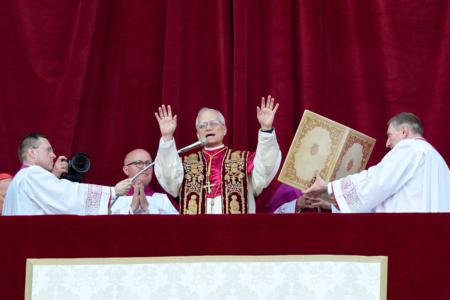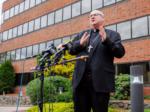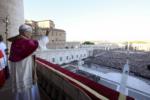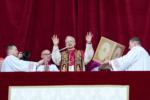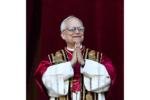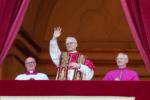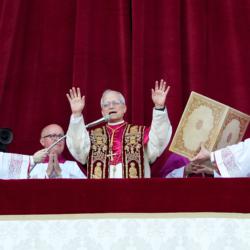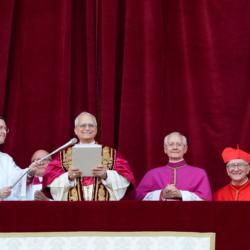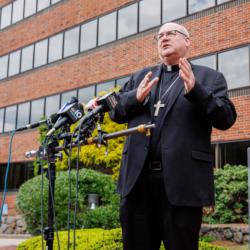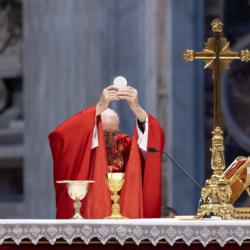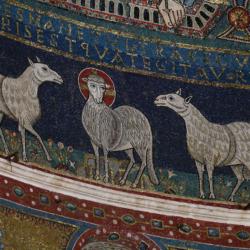New Vatican letter fuels tensions with German bishops in row over reform
WUERZBURG, Germany (OSV News) -- Tensions between Rome and the majority of German bishops are again intensifying with Cardinal Pietro Parolin, Vatican secretary of state, informing the German bishops in an official note that the ordination of men to the priesthood and the church's teaching on homosexuality are non-negotiable, the Catholic weekly newspaper Die Tagespost reported Nov. 24.
The spokesman for the German bishops' conference, Matthias Kopp, confirmed that the bishops had the letter at their Permanent Council at the beginning of the week.
In the letter dated Oct. 23 and addressed to the general secretary of the bishops' conference, Beate Gilles, Cardinal Parolin drew red lines for ongoing dialogue with the German bishops.
He emphasized that the Vatican did not consider it possible to negotiate on the church's teaching on homosexuality or the 1994 document "Ordinatio Sacerdotalis," in which St. John Paul II reaffirmed the exclusion of women from ordination to the priesthood.
In July, several heads of Vatican dicasteries met German bishops to discuss the Synodal Path, the reform project of the Catholic church in Germany. At the end of October, the German participants in the Synod on Synodality, including the president of the bishops' conference, bishop Georg Bätzing of Limburg, and general secretary Gilles held a further meeting with several heads of dicasteries. These talks are to be continued in 2024.
According to Die Tagespost, the heads of the dicasteries for doctrine, ecumenical relations, bishops, liturgy and sacraments and for legal texts want to meet representatives of the German bishops in January, April and June 2024 to discuss what is unchangeable in the church's doctrine and discipline and what can be altered.
The themes to be discussed include ecclesiology, anthropology, moral teaching and liturgy and the relevant texts of the Synodal Path.
The latest letter from Rome also pointed out that a synodal process was currently underway at a global level. "It is therefore necessary to respect this path of the Universal Church and to avoid the impression that parallel initiatives are underway that are indifferent to the endeavor to 'journey together.'"The Central Committee of German Catholics (ZdK) has reacted calmly to the latest document from Rome on planned church reforms in Germany.
ZdK President Irme Stetter-Karp said on Nov. 24 in Berlin that there had been movement on reform in the Vatican -- within the curia and also between the curia and the pope.
She said that even before the Synod on Synodality in the Vatican, Cardinal Parolin had said it was impossible to give women voting rights in the synod because that would contradict canon law. "And what did our pope do? Suddenly it was legal and was put into practice," Stetter-Karp told KNA.
Thomas Soeding, a member of the ZdK's presidium, said there were repeated attempts to "pass off partial truths taken out of context as definitive statements by Rome." The ZdK would not let itself be intimidated by this, he said. On the contrary, it was positive "that there is and should be a dialogue process between Germany and Rome."
Pope Francis recently expressed his concern about concrete initiatives individual dioceses and the Catholic Church in Germany as a whole are taking, including the establishment of a synodal council, which, he said, threaten to steer it away from the universal church.
"Instead of looking for 'salvation' in always-new committees and always discussing the same issues with a certain self-referentiality," Catholics need to turn to prayer, penance and adoration as well as reach out to the marginalized and abandoned, the pope wrote in a recent letter.
The papal letter was a response to four German laywomen who had written the pope Nov. 6 expressing their "doubts and fears" about the outcomes of the Synodal Path, which began in December 2019 and concluded in March 2023.
"I am convinced (it is) there the Lord will show us the way," he wrote in the letter dated Nov. 10. Typewritten in German and signed by the pope, the letter was published in full by the German newspaper Die Welt Nov. 21.
- - - KNA is a Catholic news agency based in Bonn, Germany. OSV News and CNS Rome contributed to this report.
